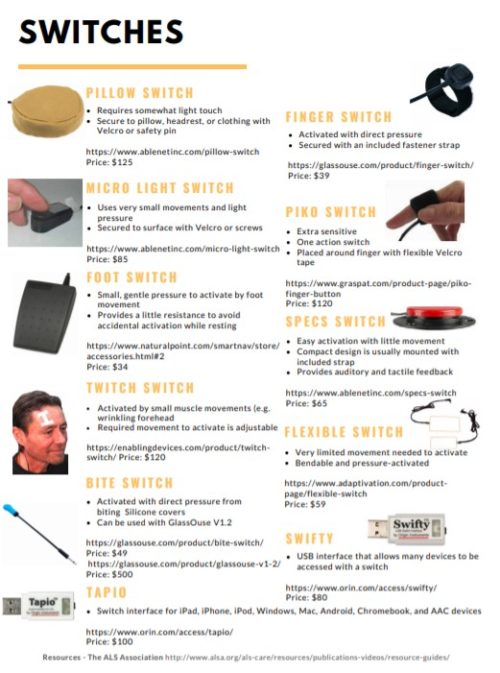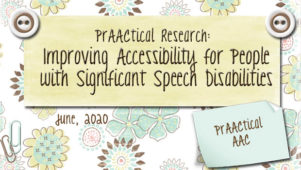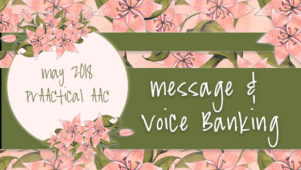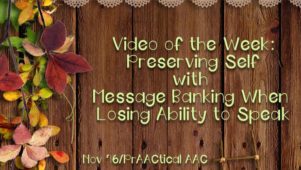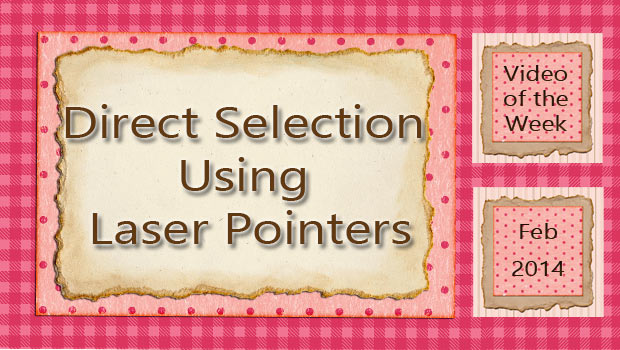Growing AAC Professionals: ALS Communication and Assistive Technology Learning Lab
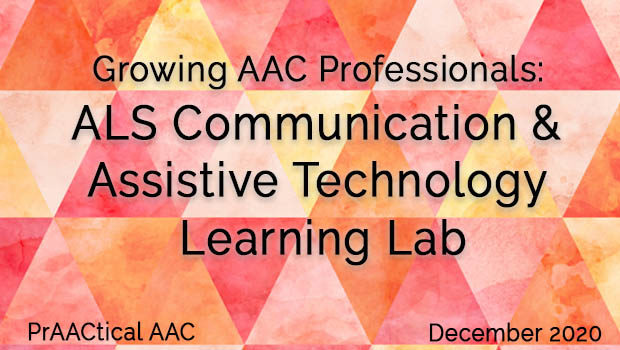
For people with complex communication needs to have access to stronger AAC services, we need more paraprofessional programs to provide mentored AAC experiences. In today’s post, we hear from Krista Davidson, a clinical associate professor in the Department of Communication Sciences and Disorders at The University of Iowa, on how she collaborated with a community organization to introduce student SLPs to AAC supports for people with ALS.
Growing AAC Professionals: ALS Communication and Assistive Technology Learning Lab
This December I thought I would share with you some more “gifts” of collaboration!
The Department of Communication Sciences and Disorders at the University of Iowa uses a team approach to clinical education. Each student typically rotates through 6 specialty-based clinical teams, mine being the AAC Team. I am always looking for new opportunities for my team, especially experiences with client populations I may not have on my caseload. Fortuitously, I met Krista Strait-Higgins, the Director of Care Services at The ALS Association Iowa Chapter, during a visit I made to the amyotrophic lateral sclerosis (ALS) clinic at our university hospital. Through this meeting, a partnership developed with The ALS Association. Like several other universities across Iowa, and thanks to funding from the Christopher and Dana Reeve Foundation, our department received assistive technology and low-tech communication kits to serve clients with ALS and their caregivers. Since then, Wendell Johnson Speech and Hearing Clinic has hosted two ALS Communication and Assistive Technology Learning Labs, one in person and one virtually. The Learning Labs are an educational opportunity especially created to introduce augmentative and alternative communication and assistive technology tools to those impacted by ALS.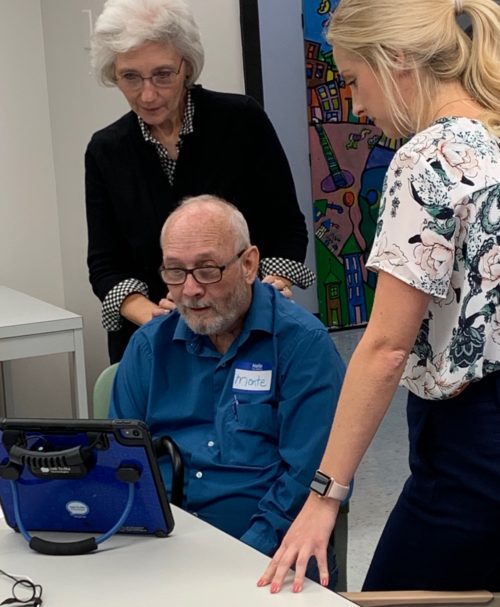
To prepare, Krista Strait-Higgins organized specialized training regarding the kits for the students on my team. I also provided time during our weekly team meetings for hands-on planning. I encouraged my team to develop handouts for the items/stations to share with participants (I am including one example with this post. The included handout was created and generously shared by Kenzie Busch, University of Iowa Class of ’20.)
The ALS Association advertised the Learning Labs and assisted with registration. During the in-house Learning Lab, undergraduate, and graduate National Student Speech Language Hearing Association (NSSLHA) members volunteered to help guide groups to different stations in various classrooms based on a rotation schedule I created. These students took notes for the caregivers related to the information provided at each station by the graduate students on my team. For the virtual Learning Lab, encrypted Zoom sessions were scheduled with one to two people with ALS and their caregivers. Graduate clinicians were paired and assigned to each group. We offered education and exposure to a variety of communication and assistive technology interventions with ample time to ask questions. Each person received individual attention from the graduate student clinicians while under professor supervision. The following topics were addressed either through interactive practice stations or through demonstration or video on Zoom:
- High Technology Speech-Generating Devices and Switches
- Hands-Free Computer Access
- Smart Phone and Tablet Apps and Access Interventions
- Environmental Controls
- Rapid Access/Low Technology Scanning and Eye Gaze Interventions
After the Learning Labs, we collected feedback surveys from participants and students. One participant said, “They did an awesome job showing and explaining all the different options that are available. Very happy I participated.” Another stated, “All the presenters were very kind, patient, and helpful. They took time to answer all my questions.” Also, 100% of participants from both events stated they would recommend it to others. All the students reported the labs improved their education and confidence in serving individuals with ALS and/or other similar disabilities in the future, and 100% would encourage other classmates to participate in this event. With this type of feedback, it was easy for me to commit to conducting at least two Learning Labs each year. I am eager to continue serving the ALS population while providing students on my AAC clinical rotation valuable hands-on experiences.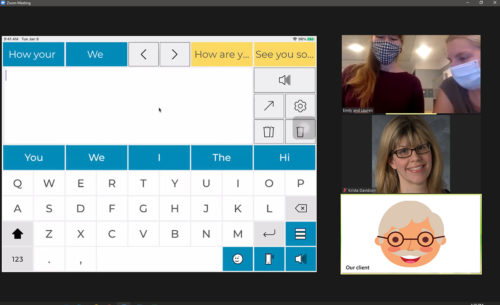
I am including the Navigating ALS resource tool from the ALS Association Iowa Chapter with this post. Every chapter offers different services and supports. Please check with your local chapter for specifics. The ALS Association YouTube channel and the ALS Assistive Technology Group on Facebook are also excellent resources! I hope you will consider sharing a similar gift of collaboration with your students in the coming year!
Thank you to Krista Strait-Higgins, the Director of Care Services at The ALS Association Iowa Chapter for your contributions to the Lab and this post.
About the Guest Author
Krista Davidson is a clinical associate professor in the Department of Communication Sciences and Disorders at The University of Iowa. She can be reached at krista-davidson{at}uiowa.edu
You can see Krista’s previous posts on preservice AAC education here.
Filed under: Featured Posts, PrAACtical Thinking
Tagged With: ALS
This post was written by Carole Zangari
